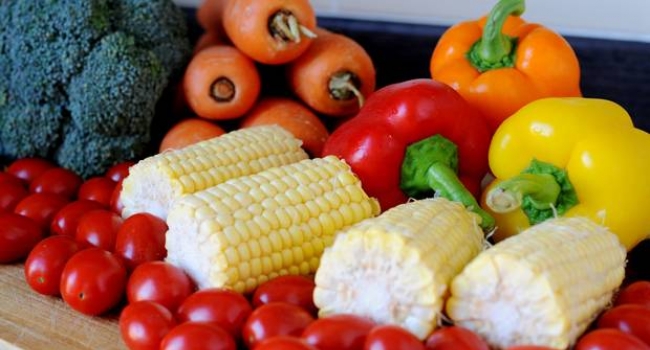- Latest news▼
-
17:35, May 17 WHO updates list of drug-resistant bacteria most threatening to human health

-
08:36, May 17 Gene discovered that plays important role in prostate cancer treatment

-
17:28, May 16 Up to 246 million older people may be exposed to heat risk by 2050 due to global warming

-
11:11, May 16 JARRL: it takes more than 12 weeks of exercise to improve cerebral blood flow

-
08:33, May 16 Cause of sudden death from heart attack is determined

-
18:24, May 15 Journal of Nutrition, Health & Aging: Moderate wine consumption reduces inflammation in the body

-
15:33, May 15 Conjoined twins in Indonesia born fused together like a 'spider' in ultra rare case

-
17:07, May 14 Armenia gets $780,000 grant to fight diabetes complications

-
11:59, May 14 Smart bandage created in Russia to treat wounds based on electrostimulation

-
19:31, May 13 Daily Mail: black beans and walnuts increase life expectancy

-
17:01, May 13 In 2024, 399 cases of measles infection confirmed in Armenia

-
13:14, May 13 Nature Medicine: New genetic form of Alzheimer's disease discovered

-
11:22, May 13 PNAS: Researchers determine how herpes virus penetrates nervous system

-
14:50, May 12 The first person to receive a genetically modified pig kidney transplant dies in the United States

-
18:36, May 11 Mum, 32, almost dies from multiple blood clots after ‘GP prescribed wrong contraceptive pill’

All materials
Mediterranean diet may cut breast cancer relapse risk

A Mediterranean diet rich in vegetables, fish and olive oil may reduce the risk of breast cancer returning, a study suggests.
Research on more than 300 women with early-stage breast cancer reinforces earlier work suggesting diet may play an important role in cutting cancer risk.
Presented at the American Society of Clinical Oncology (Asco) conference in Chicago, the study involved 199 women eating their normal diet and 108 who ate a Mediterranean diet.
A Mediterranean diet includes vegetables, fruit, nuts, seeds, fish and olive oil, while being low in red and processed meat, and with alcohol kept to a minimum.
People who are considered to get maximum benefit from the diet have less than one drink a day for women, or one to two for men, and fewer than three servings of red meat per day. They also eat several servings of fruit and vegetables per day, one serving of wholegrains and up to four servings of fish per week.
In the latest study, carried out at Piacenza Hospital in Italy, women who were in remission from breast cancer were tracked for three years. The results showed that during that time, 11 patients suffered cancer again who were following their normal diet, while no women in the Mediterranean diet group experienced a relapse.
Samia al Qadhi, chief executive of Breast Cancer Care, said: "For many women, fear of the disease returning is one of the biggest issues they face.
"So anything that helps us understand how to lower risk of recurrence in women who follow a Mediterranean diet is a welcome addition to our toolbox. However, this is a small study which only followed women for three years. We look forward to seeing results of longer term studies."
Professor Arnie Purushotham, Cancer Research UK's senior clinical adviser, said: "The preliminary results of this small study suggest that a Mediterranean diet could lower the risk of breast cancer returning, but we'd need much longer follow-up than three years to confirm the diet's impact."
Follow NEWS.am Medicine on Facebook and Twitter
- Related News
- Journal of Nutrition, Health & Aging: Moderate wine consumption reduces inflammation in the body Wine rich in polyphenols…
- Daily Mail: black beans and walnuts increase life expectancy Nuts and black beans are rich in fibre, which helps reduce inflammation in the gut and in the body as a whole...
- Gastric Cancer: salt overuse increases the risk of developing gastric cancer by 39% Researchers analysed health data from more than 470,000 adults...
- Red, highly processed meat increases risk of cancer, experts say However, it is not necessary to give up red meat completely…
- What role does diet plays in the treatment of bipolar disorder? This gene is known to be an area of strong risk factor for bipolar disorder and is responsible for converting linoleic acid to arachidonic acid...
- Video
- Event calendar
- Archive
- Most read
month
week
day
- In 2024, 399 cases of measles infection confirmed in Armenia 1685
- PNAS: Researchers determine how herpes virus penetrates nervous system 1541
- Daily Mail: black beans and walnuts increase life expectancy 1450
- Nature Medicine: New genetic form of Alzheimer's disease discovered 1419
- Armenia gets $780,000 grant to fight diabetes complications 1366
- Conjoined twins in Indonesia born fused together like a 'spider' in ultra rare case 1351
- Smart bandage created in Russia to treat wounds based on electrostimulation 1292
- Up to 246 million older people may be exposed to heat risk by 2050 due to global warming 989
- Cause of sudden death from heart attack is determined 882
- Journal of Nutrition, Health & Aging: Moderate wine consumption reduces inflammation in the body 861
- WHO updates list of drug-resistant bacteria most threatening to human health 822
- JARRL: it takes more than 12 weeks of exercise to improve cerebral blood flow 818
- Gene discovered that plays important role in prostate cancer treatment 698
- Find us on Facebook
- Poll





